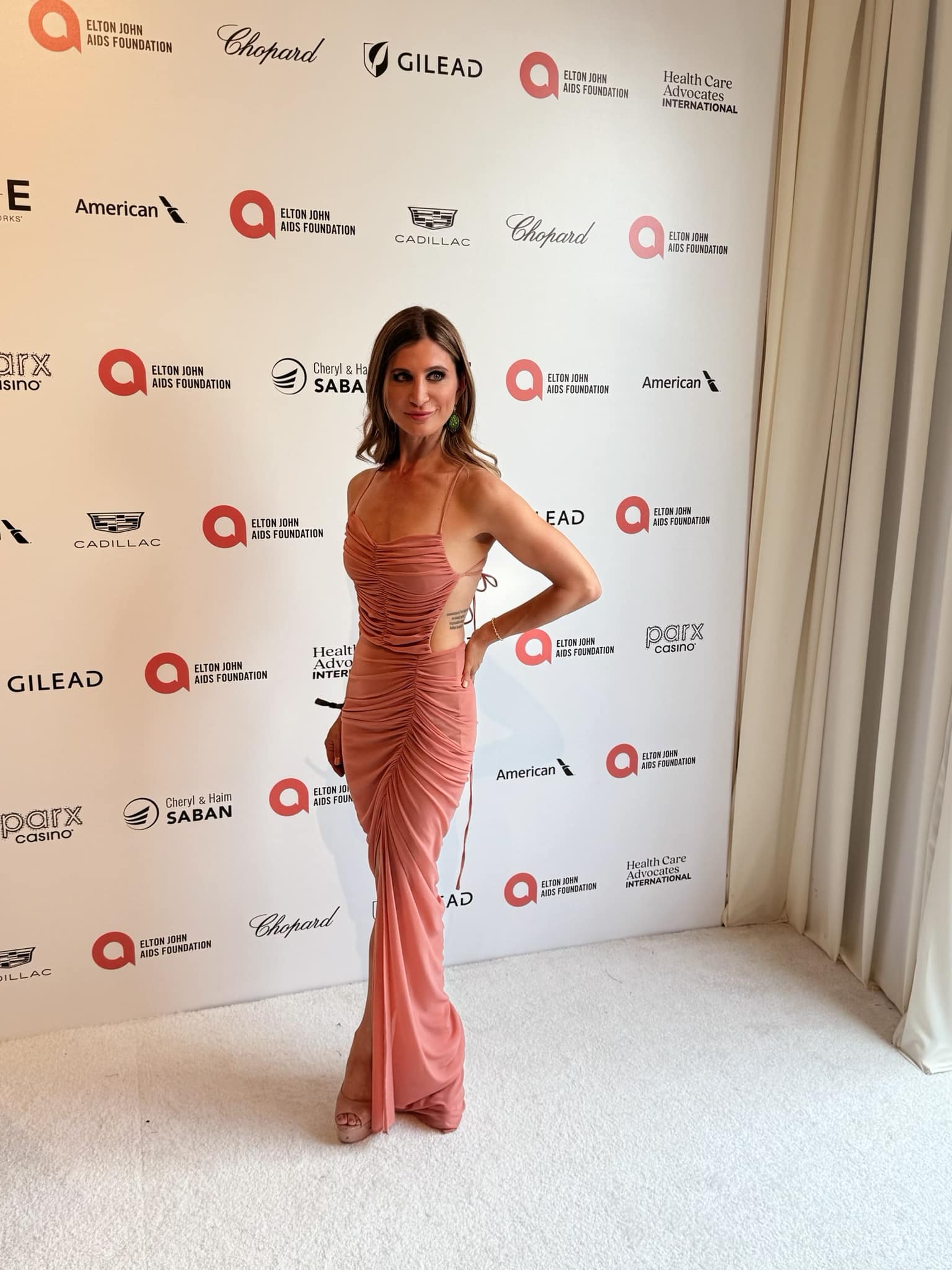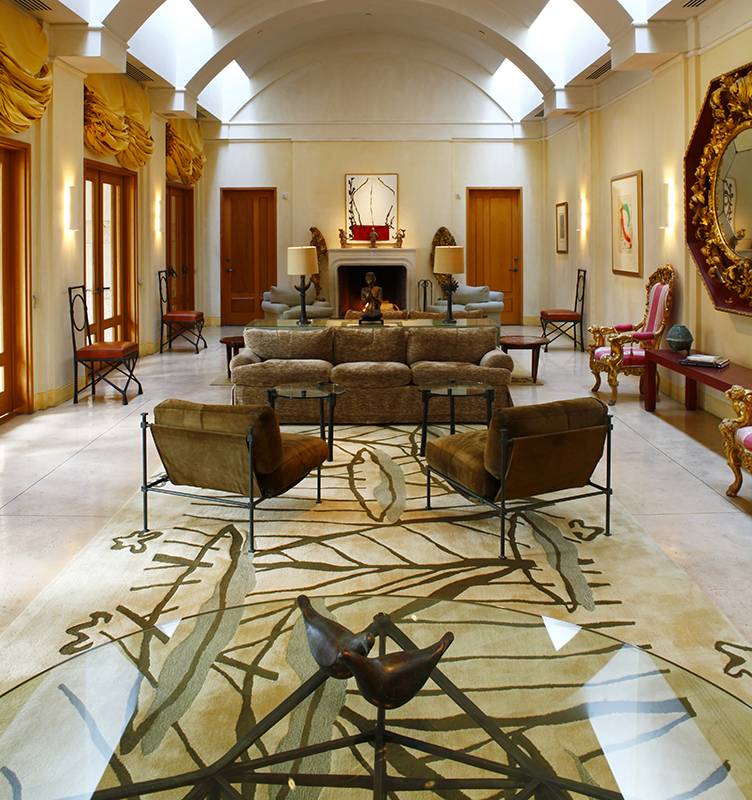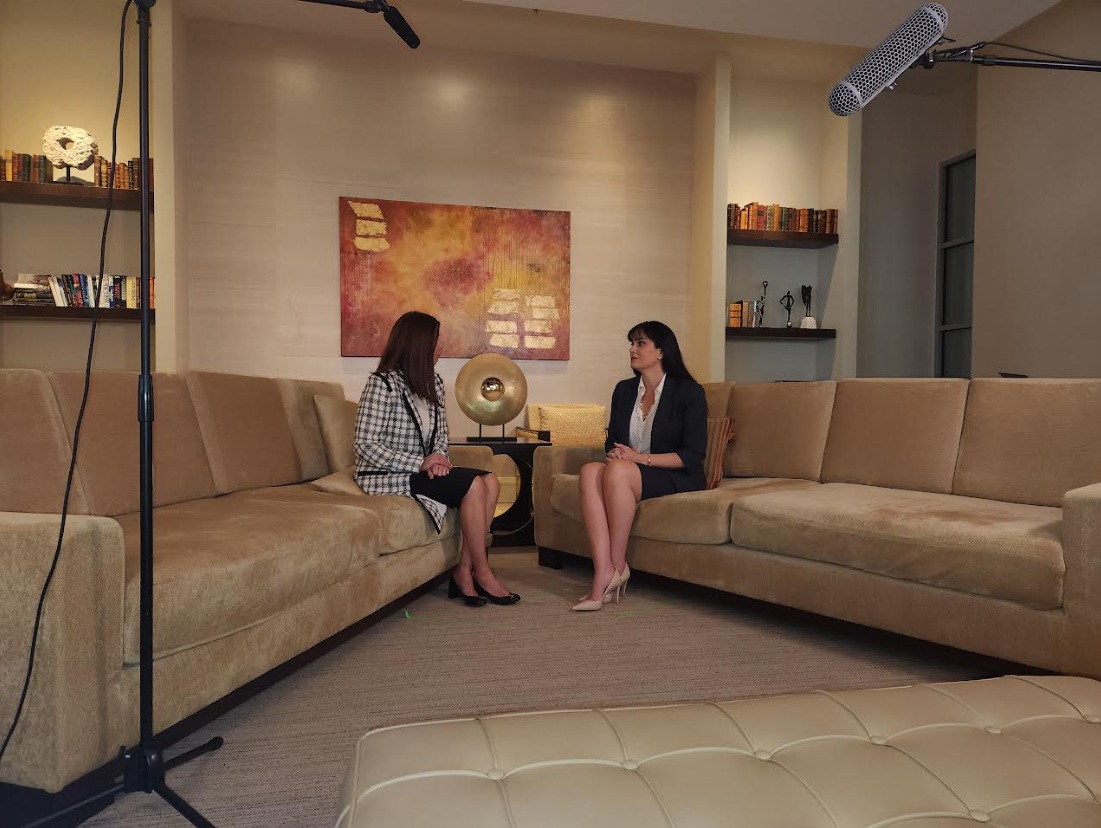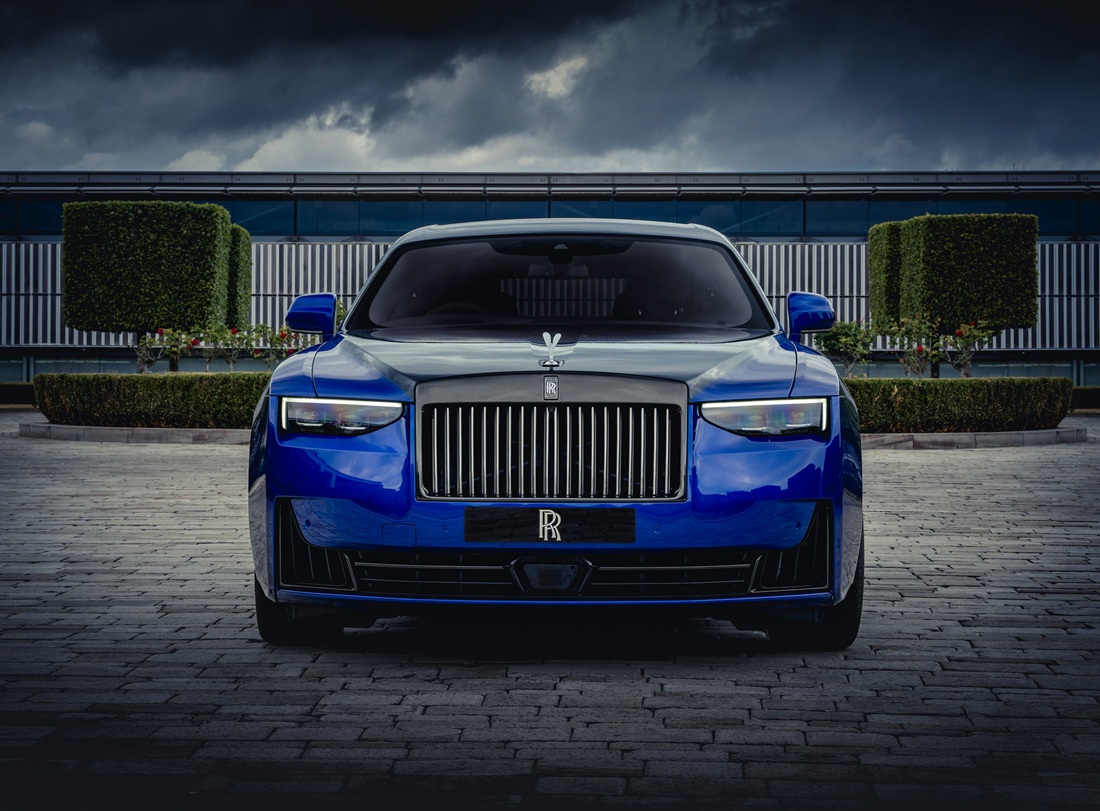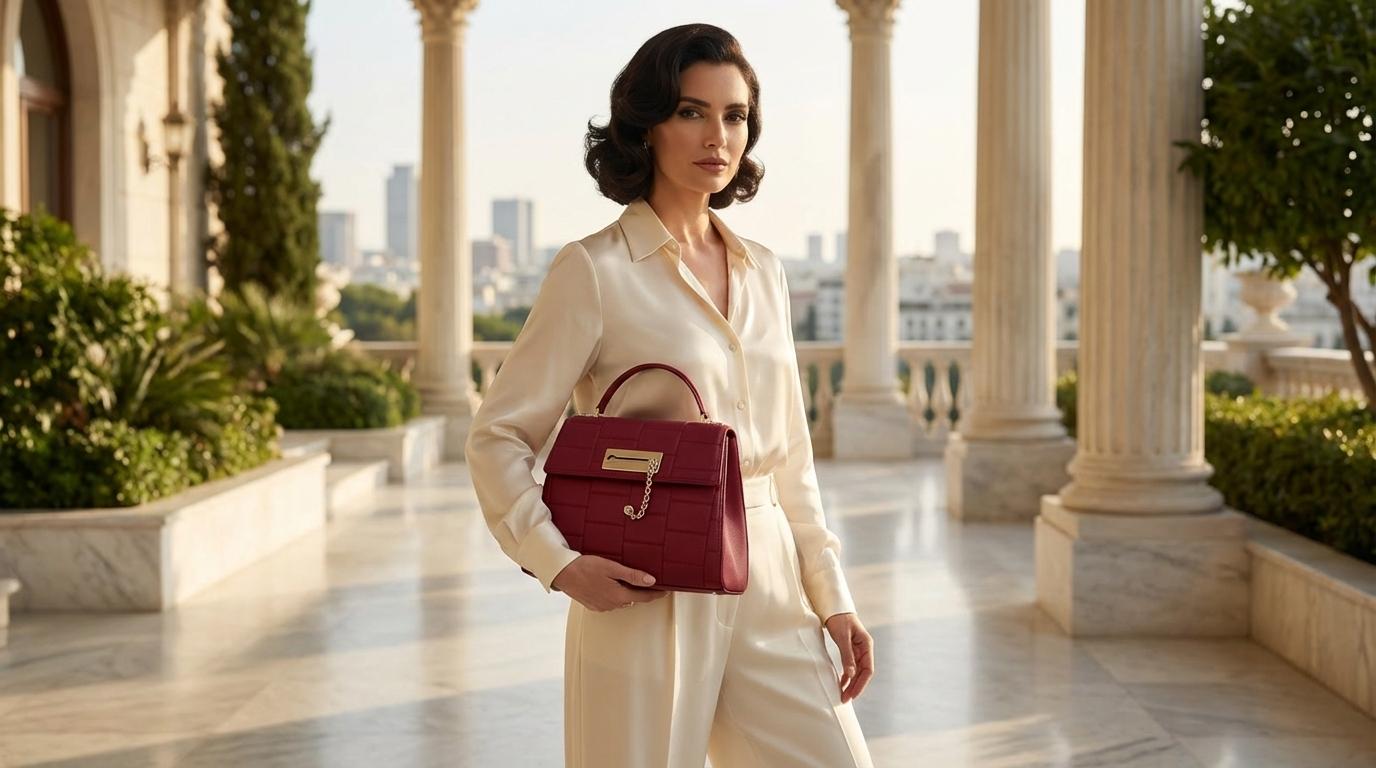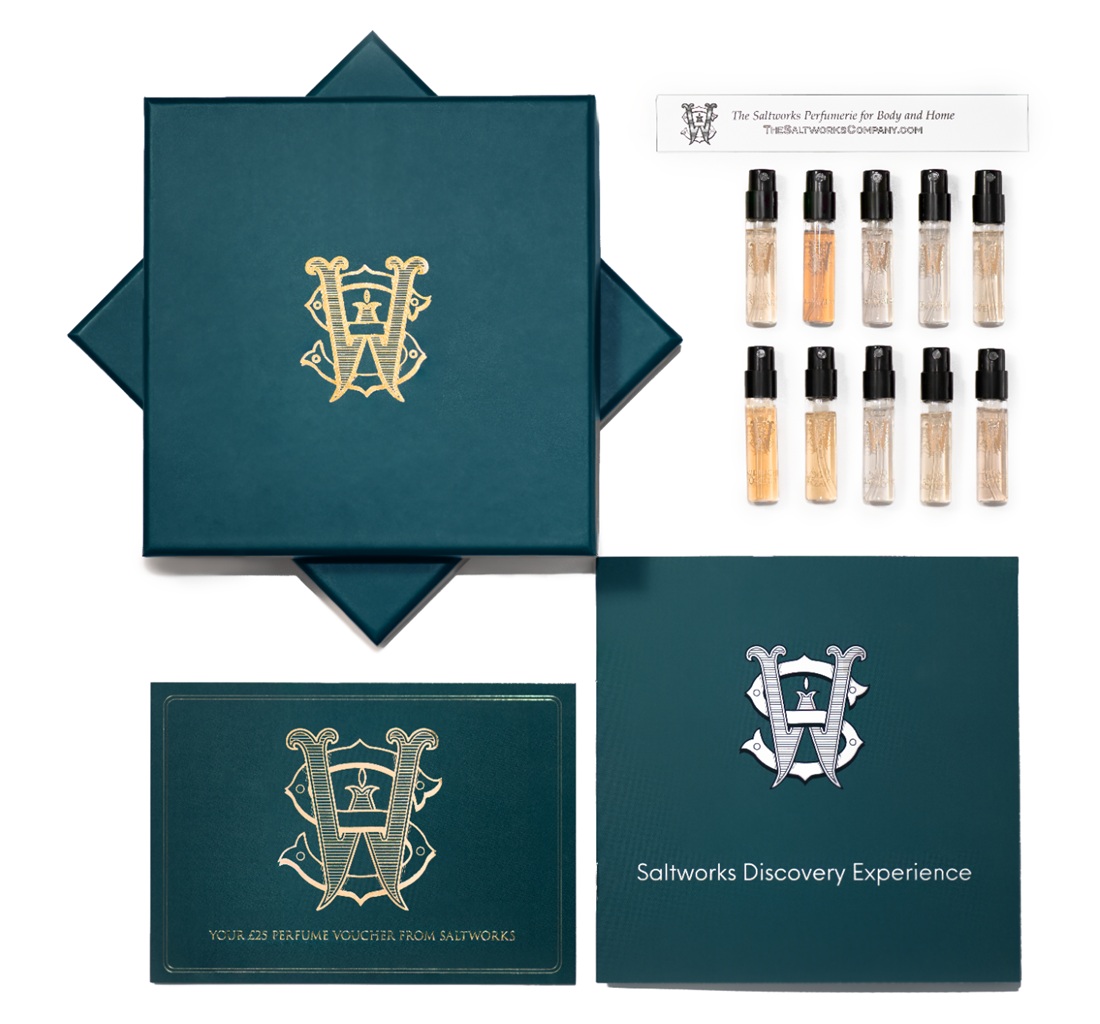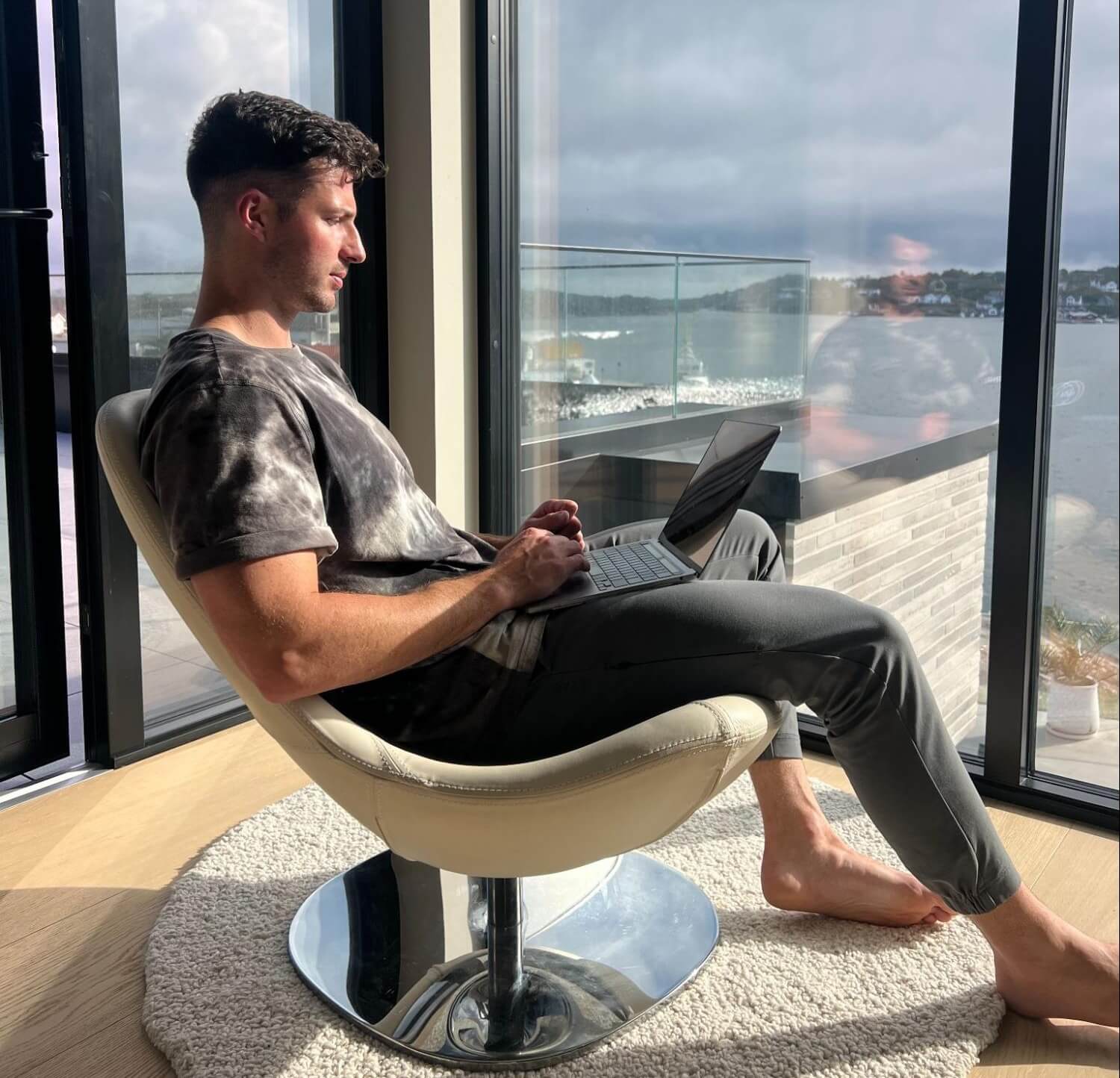Opus One CEO David Pearson Just Needs Food, Wine and Friends
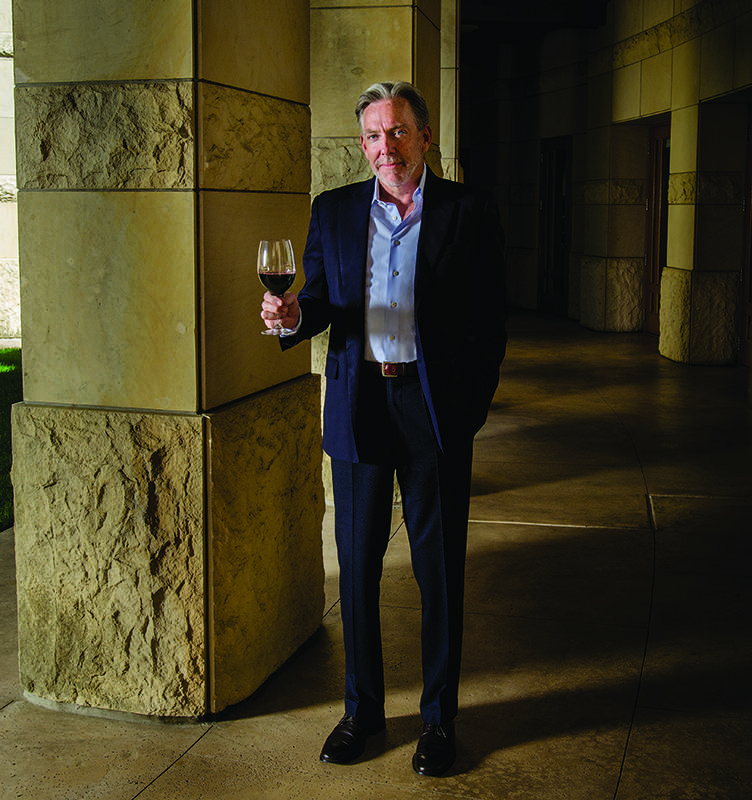
The concept of “family” is something that David Pearson thinks about often. On a personal level, the father of three is quite familiar with the term, but it wasn’t always the word he would have applied to his business life—until recently.
Pearson is the first sole CEO of Opus One, a joint venture between the late, great winemakers Robert Mondavi and Baron Philippe de Rothschild (“opus” denoting the first masterwork of a composer). In 2004, Constellation Brands Inc. purchased the Robert Mondavi Corporation, and in the process, a fifty-percent share of Opus One. The winery does, however, operate its independence in the areas of vineyard management, domestic and international sales, and administration. In that sense, it is different from the predominantly family-owned wineries of Napa Valley, making Pearson’s difficulty in describing his workplace understandable.
However, with the offer to chair Napa’s social event of the season—Auction Napa Valley—after a bit of introspection, the 53-year-old CEO realized that the winery’s more complex ownership didn’t make its employees any less of a family, just simply a more modern one.
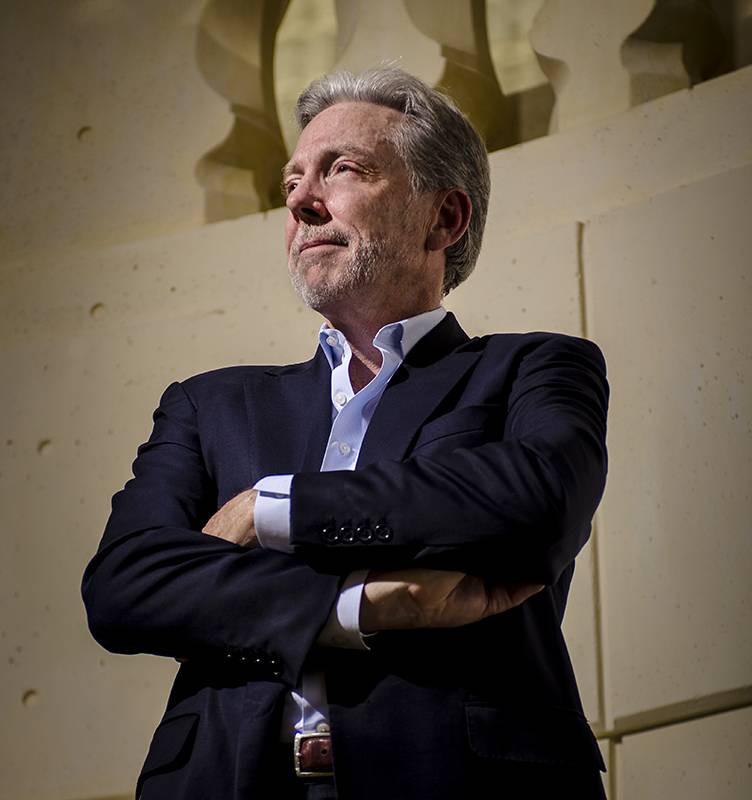
“In the last ten years, we’ve worked very hard to make this an independent wine. We’re like the child that grew up, has left the house and still sees the parents, but is living independently,” he says. “When [the Auction committee] first asked us, we said, ‘We’re not really a family’—most of the chairs of the past years have been family-owned wineries—and then we said, ‘Wait—yes we are.’ We started thinking about what that meant, to be a family. What we came up with is that [those in a family] take care of each other. In that sense, we welcomed the opportunity to present Opus One to Napa and the Auction as a family.”
Though Opus One is widely considered to be one of the most exclusive wines in Napa, its place at this year’s event might be most accurately described as a cotillion. It was a baby at the first-ever Auction in 1981: Mondavi—who was actually among the creators of the Auction, which he formed with six winemakers of the Napa Valley Vintners—and the Baron debuted their collaboration as a lot of six bottles, two from the 1979 harvest and four from 1980, under the working title of “Napa Medoc,” though the brand itself would not make a market debut until 1984.
Needless to say, Opus One’s debutante ball was a success. Pearson recalls a story passed along by Mel Dick, President of Southern Wine & Spirits, Wine Division, who happened to be at that inaugural event and was hell-bent on purchasing the winery’s debut case.
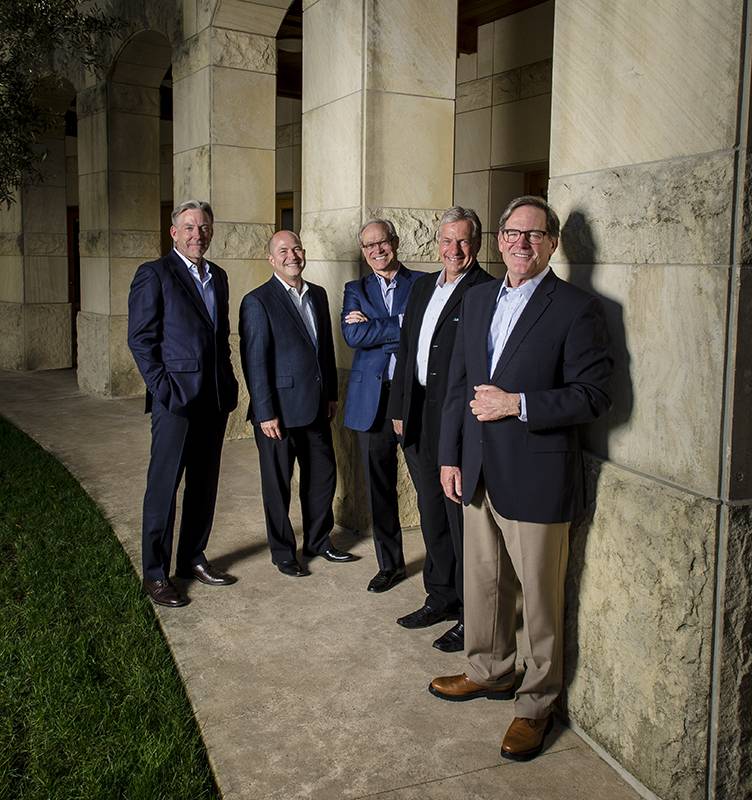
(From l-r) David Pearson: CEO; Christopher Barefoot: Vice President, Public Relations;
Robert Roux: Vice President National Sales and Marketing; Robert Fowles: CFO
Michael Silacci: Winemaker (Not pictured—Laurent Delassus: Vice President of International Marketing)
“Today, Napa wines are very expensive, but we forget that back in the day, that most wines sold for $6, $7, $8 a bottle; nothing was more than $10. So Mel tells this story about how he was planning on spending $750 [for that first case] because no one had spent that much money on a lot of wine before. He starts bidding—he’s a very competitive guy—and the lot goes past $750 to $1,000 to $5,000. It’s at $10,000, and he’s still bidding. His wife is sitting next to him, trying to put his arm down, but he’s in competitive bidding mode with another guy, Charles Mara, and he only decides to put his paddle down when the price went to $24,000. It was the most expensive case of Napa wine ever sold at that point.”
He notes, “We have a place in the beginning of the Auction, and it’s fun for us to come back and say, ‘Hey, 34 years later we’re happy to present ourselves now as the grown-up Opus One.”
Since its pedigreed inception, Opus One has become a global brand that Pearson likens to the Lamborghini or Chopard of wines. “We want [Opus One] to be considered among the finest wines in the world; we’re very competitive about that. In the last ten years, we’ve grown our international business from 18 percent to 52 percent outside of the U.S. in 70 countries worldwide. Our promotional approach is simple, but really superb; we simply travel around the world a lot and invite small numbers of people to join us for dinner. When you have a dinner with 10 or 15 people that’s intimate with great food, great wine, and hopefully great company, it touches the most basic of needs. When you’re sitting at a table eating expensive food and drinking magnificent wines telling stories, it creates a kind of magic that is simply unobtainable otherwise.
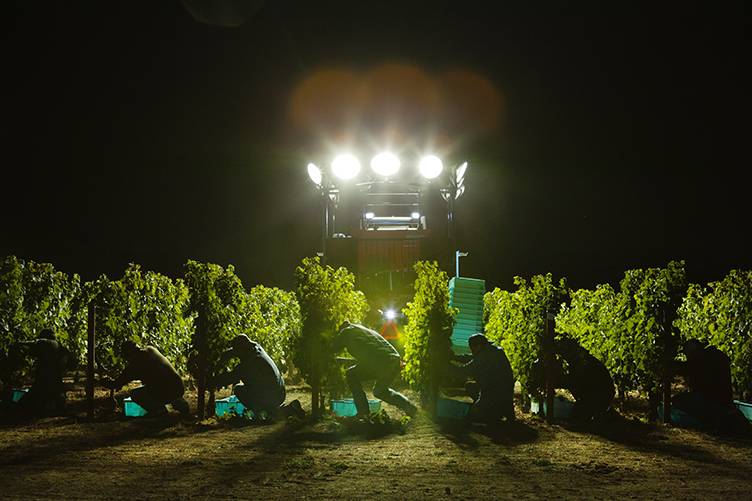
“Our business isn’t to sell wine—it’s to make friends,” he adds. “It sounds kind of corny and clichéd, but that’s what we do. We’re creating moments, experiences and memories that last.”
Pearson has been working with Opus One for 11 years, but has spent his entire life in the wine business thanks to what he describes as a “fluke of nature”—a summer working on a vineyard in France prior to starting his freshman year at the University of California, Davis.
“If your name isn’t Mondavi, Gallo or Martini, you have a more circuitous story [of how you happened to fall into the wine business],” he notes. “I was 18 years old, and my brother had planned for us to spend two months in Europe. I was without good direction. So, we went to Europe, and it was a trip that changed the direction of everything in my life.”
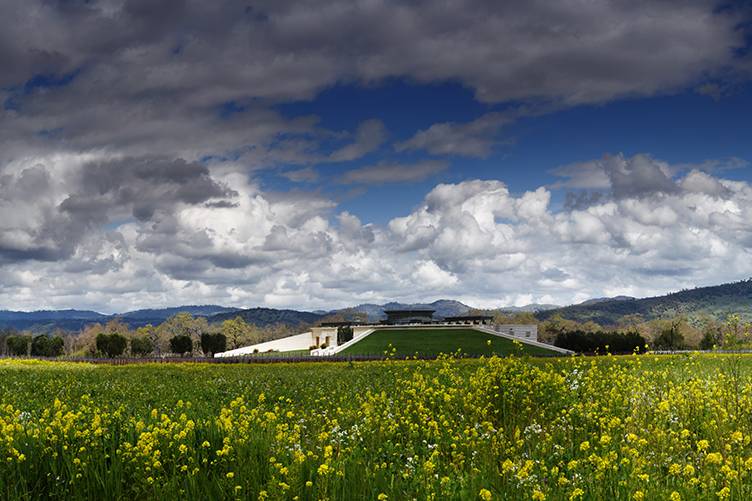
At the end of his time working on the property—Labouré-Roi in Nuits-St. Georges—the winemakers asked he and his brother what they wanted to do with the rest of their lives. Though his sibling’s answer was very clear [he’s now a doctor], Pearson was uncertain.
“They said, ‘You’re going to be a winemaker.’ I was like, ‘Get out of here! Why would I do that?’” he laughs. He didn’t give the comment much thought until he was thumbing through U.C. Davis’ program book and came across a four-year undergraduate study of fermentation science. “I thought it was a hoot. I was like, ‘This actually exists!’” He planned on declaring said major as “kind of a joke” with the intent of going off and doing “something serious.”
Then, as it happened, fate took over. The owner of Laboure-Roi wrote Pearson a letter, saying that he and his winemaker wanted to take a tour of the campus, because the U.C. Davis campus was one of the greatest wine schools in America. They did come visit, and Pearson, true to his word, showed them around his new school. At the end of their stay, however, the French winemaker—whom he still has a relationship with today—made him a surprising offer.
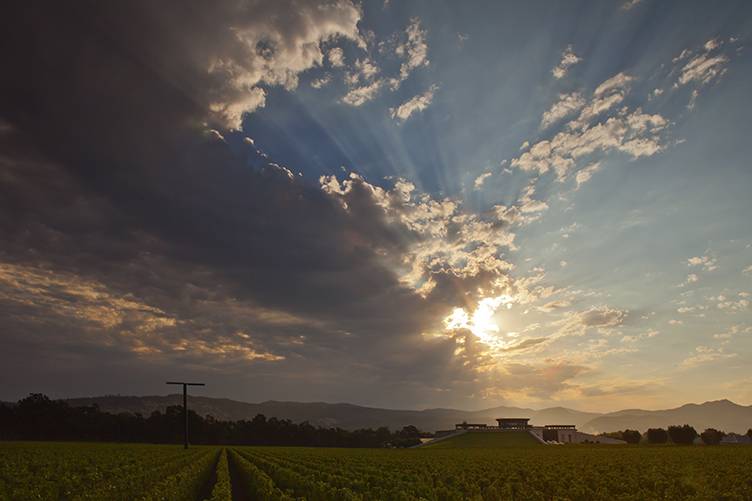
“He said, ‘You don’t need to do all of that. Taste 500 wines, and you’ll be an expert. When you’re done with your degree, come back to France and I’ll teach you French winemaking.’ I thought, ‘That’s sort of cool.’ I pocketed that, because I was a French minor. As I got to the third year, I stuck with it and found that I appreciated the applied nature of the science. At the end of the four-year program, he was good to his word and invited me back to France, where I lived and worked for a year learning French winemaking.”
Destiny played a part in the next part of Pearson’s life, as well: a part that converged with the story of Opus One’s founders. “The great irony of my career is that this man—Armand Cottin—who is responsible for getting me into the wine business, had a brother named Philippe, the gentleman, who, more than any other, is responsible for bringing the Baron de Rothschild and Robert Mondavi together to create Opus One.”
Through Armand, Philippe Cottin requested that Pearson visit Château Mouton Rothschild’s estate in Bordeaux during his yearlong French winemaking sojourn. During his two-week stay at the property, he not only met Tim Mondavi, Robert’s son, but was also shown into a laboratory where a team happened to be working on—voila!—Opus One. “I sat in the back and listened [to what they were saying]. I followed them around, had dinner with them, and then they went their way and I walked back to my little hovel. That was the opening of my professional career, and to be here now is fairly special for me. It has a bit of full circle to it,” he says.
Today, Pearson has so much respect for his ties to the wine world that he honors them by tirelessly promoting Opus One around the globe in the way he knows best—with intimate dinners he refers to often as “memorable.” His fondest wine memories—which range from drinking an 1870 Château Mouton Rothschild with the Baron’s only daughter—Philippine—in her private library, to drinking a homemade wine in a Loire Valley cavern, to his recent “refined culinary experiences” in Japan—include great conversation and fantastic wine.
“It doesn’t take an 1870 Château Mouton Rothschild [to have an unforgettable wine experience],” he notes. “It’s about the environment and the moment as much as it is the wine.”
He has a similar sentiment when it comes to the ‘best’ of Opus One’s wines. Though he believes that 1987 and 1991 were among the winery’s best years (and, as a result, the wines they have the fewest cases of remaining) it is the 2011 that holds a special place in his heart. “2011 was a really difficult year; there were more clouds and moisture, and grapes like sun. In really challenging years when you come up with a wine that’s actually quite good, in a way you’re more proud of that, though in the absolute sense it isn’t one of the great vintages. It’s the little engine that could.”

The same could be said, in a sense, about Opus One itself—the childlike venture of two very powerful parents that has successfully become one of the most beloved brands of Napa Valley over the course of 36 years.
“Timing is everything in the wine world, and part of the success of Opus One was timing; it hadn’t been done before. Napa hadn’t seen a French and Napa Valley winery come together before,” Pearson acknowledges, adding, “I think we have a very nice place in Napa today. The ultimate measure of these great wines is not sales revenue or profitability or scores or critical reviews, but the ability to span generations. You do things today so that your kids and their kids will have a better world. You have to think long-term.”
Sometimes, of course, you need to cease thinking, and just enjoy a beautiful moment. “When we take the time to stop for two hours, it has huge meaning,” Pearson says with a smile, citing his honeymoon as the perfect example. “My wife and I had gotten white peaches in the Latin Quarter of Paris. We had never had white peaches like that before. It was the most luxurious moment you can have up to sitting at The French Laundry for five hours. Having the opporutnity to spend unfettered, relaxed time with family and friends, enjoying food and wine—that’s the greatest luxury in life.”

